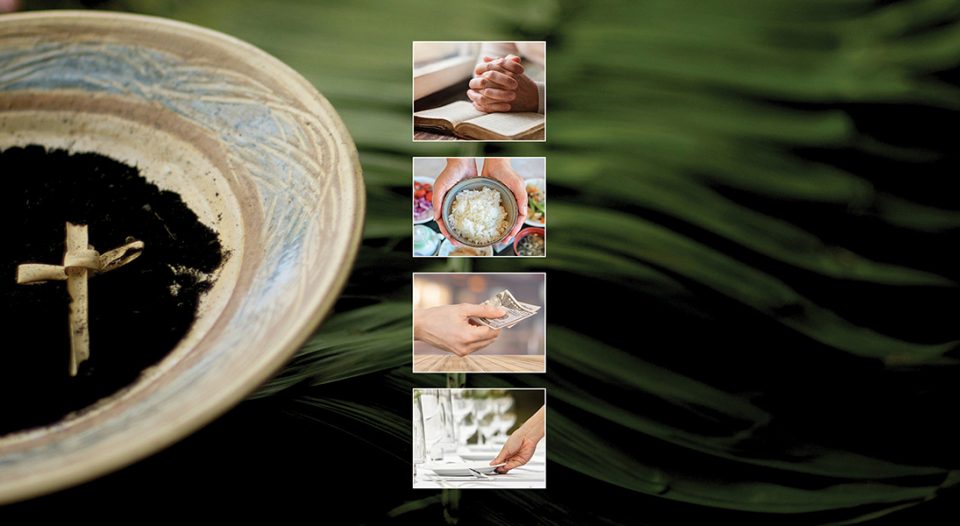Should we give something up or take something on in Lent? It seems the rules aren’t quite as clear as they used to be: fish on Fridays, evening worship on Wednesdays, no alcohol or chocolate for a 40-day fast? What’s the point?
The gift of the liturgical calendar is that it focuses the heart and mind on developing the spiritual tools necessary for the life of faith. We wait in Advent so we can cultivate the spiritual resources required for times of waiting. We celebrate at Christmas and practice spiritual gift-giving so we know how to give, and receive, gifts—including the gift of Christ.
And we turn inward in Lent so we know how to survive when the spiritual well is dry, despondent or gone altogether. Whether you take something on or give something up doesn’t really matter. What matters is that whatever you do is intended to bring you back to the one who gives all and is all-in-all for the Christ follower.
Lent is a spiritual housecleaning intended to bring us back to ourselves and the God who first formed us from the ash we smudge on our foreheads that first day of this holy fast.
Here are some ideas around giving up and taking on this Lent that might do just that.
Take on intentional, personal prayer. I have an app on my phone by “Common Prayer: A Liturgy for Ordinary Radicals” that pings me at 7:30 a.m., noon and 7 p.m., reminding me to take a moment to pray. It even provides me with prayers for the day so I don’t go searching for words. You can find more at commonprayer.net.
Give up your meal—or at least transform it. Perhaps on Mondays you’ll make a meal of rice and beans mixed with a simple vegetable or side of fruit. And as you eat, you’ll be mindful of the nearly 1.2 billion people around the world who live below the poverty line and spend half of their daily food expenditure on rice, and the more than 300 million people who use beans to keep malnutrition at bay. As a family, this could be a neat discipline of looking at a new culture every week and eating in solidarity with them.
Take on a greater fast: money. Practice spending on only what you need in this season, and be strict about the definition of “need.” But do not pocket the savings. Practice the spiritual gift of generosity for others or a cause that seeks after God’s shalom in the world. Pad your spiritual life, not your bank account.
Give up your table for others. On Maundy Thursday, Jesus gathered with his friends. Can you make your own table a welcome one in this season of introspection? Hospitality is a spiritual discipline that allows us to see God in the other, and sometimes we find that we see God for the very first time.





